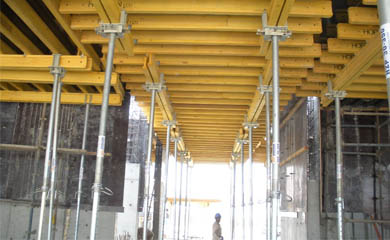Nov . 12, 2024 09:59 Back to list
steel formwork
The Role of Steel Formwork in Modern Construction
In the realm of construction, formwork plays a critical role in shaping and supporting concrete structures until they achieve sufficient strength. Among the various materials used for formwork, steel has emerged as a preferred choice for many construction projects due to its durability, strength, and versatility. This article explores the benefits, applications, and innovations related to steel formwork in modern construction.
Understanding Steel Formwork
Steel formwork refers to the process of using steel materials to create molds for pouring concrete. Unlike traditional wood or plastic options, steel formwork is engineered for longevity and can withstand the rigors of construction environments. Steel panels can be designed to various shapes and sizes, enabling flexibility in architectural designs. Moreover, steel formwork can be used for both horizontal and vertical structural elements, such as walls, beams, and slabs.
Advantages of Steel Formwork
1. Durability and Load Resistance Steel is inherently strong and has high load-bearing capabilities, making it ideal for heavy construction projects. Unlike wood, which can warp or split over time, steel formwork retains its shape and dimensions, ensuring precise concrete dimensions.
2. Reusability One of the most significant advantages of steel formwork is its reusability. With proper maintenance, steel panels can be reused many times, leading to reduced material costs and waste. This not only makes steel formwork a more economical choice but also contributes to sustainability in construction.
3. Speed of Construction Steel formwork allows for quick assembly and disassembly, which can significantly speed up the construction timeline. This efficiency is essential in reducing labor costs and minimizing project delays. The panels are often lightweight and designed for easy handling, allowing for faster turnover in construction projects.
4. Quality of Finish Steel formwork provides a superior finish to concrete surfaces, reducing the need for extensive post-construction treatments. The smooth surfaces of steel panels contribute to a high-quality aesthetic in the finished concrete work, which is particularly important in architectural designs.
steel formwork

5. Safety The robust nature of steel formwork enhances site safety. It provides better support for concrete during curing, mitigating risks associated with traditional wooden formwork that can fail under pressure.
Applications in Construction
Steel formwork is utilized in a wide range of construction applications, from residential buildings to large-scale infrastructure projects. It is particularly favored in the construction of high-rise buildings, bridges, tunnels, and industrial structures. The modular nature of steel formwork systems allows for easy customization to accommodate different project needs.
Furthermore, with the rise of precast concrete elements, steel formwork has seen an increase in demand. Precast panels can be manufactured off-site, and using steel formwork ensures uniformity and accuracy in production. This process not only improves construction efficiency but also allows for better quality control.
Innovations in Steel Formwork Technology
The construction industry is constantly evolving, and so is the technology surrounding steel formwork. Innovations such as the use of automated systems for formwork assembly, the integration of digital technology for design and fabrication, and the development of lighter-weight steel materials are transforming the way steel formwork is utilized. These advancements are aimed at enhancing safety, efficiency, and cost-effectiveness in construction operations.
In addition, the movement towards sustainable construction practices has led to an increased emphasis on using steel formwork. With its reusability and recyclability, steel formwork aligns with eco-friendly building initiatives, contributing to a reduced carbon footprint in the construction sector.
Conclusion
Steel formwork has proven to be an indispensable asset in modern construction. Its durability, efficiency, and ability to produce high-quality finishes make it a preferred choice for various projects. As technology continues to advance, steel formwork will likely play an even more significant role in the future of construction, helping to meet the growing demands for speed, quality, and sustainability in building practices. With its numerous advantages, it's clear that steel formwork is not just a construction method but a vital component in shaping the skylines of tomorrow.
-
OEM Column Formwork: Circular, Curved & Inclined Solutions
NewsAug.26,2025
-
Premium Scaffolding Jacks: Stable, Adjustable & Durable
NewsAug.25,2025
-
OEM Wall Formwork & Shuttering: Flexible & Curved Solutions
NewsAug.24,2025
-
Adjustable Heavy Duty Props for Slab Formwork | Strong & Reliable Support
NewsAug.23,2025
-
Adjustable Heavy Duty Props for Slab Formwork - Strong & Safe Support
NewsAug.22,2025
-
Formwork Spring Clamp Factories: Quality & Bulk Supply
NewsAug.21,2025